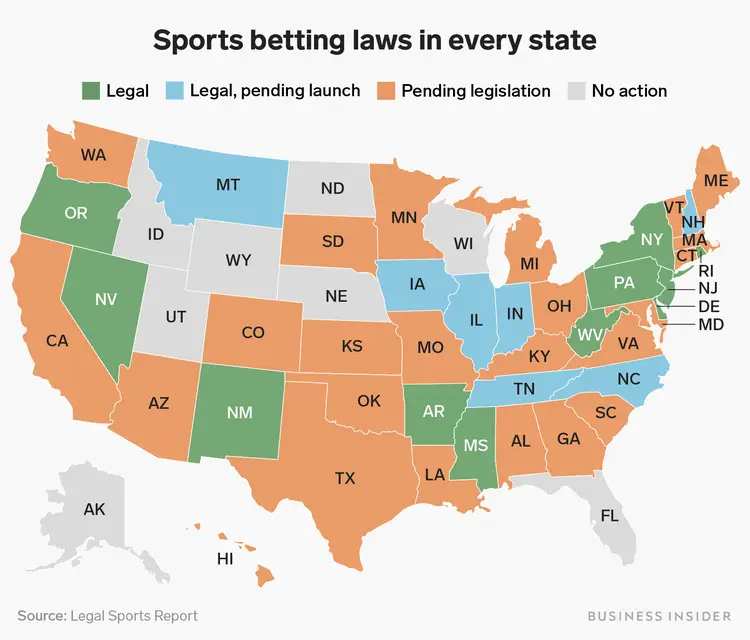
The history of gambling regulation in the US is lengthy and contentious. In general, gambling is a rather regulated activity in the United States.
It is authorized at the federal level. However, each state is free to decide whether to allow gambling or not. Due to this, there are now wildly different regulations in every state and frequently even across neighboring ones.
If you don’t know where to look or what to look for specifically, all of this can become very perplexing. That’s why we’ve put up a quick page with information on all of the US states where gambling is permitted. You can also find out more about 토토사이트 on this website.
The laws governing online poker and gambling in the United States are evolving state by state. For instance, New Jersey legalized online poker and gambling in November 2013, giving US players in other states some optimism for playing at online casinos. For a breakdown of other states’ laws, check the section below.
토토 primarily focuses on the state laws that apply to lotteries, social gambling, and unregulated, illegal casino-style or professional gaming. Where it is addressed, legal gaming is covered more briefly.
The results in the aforementioned chart are, in many cases, just informed assumptions because they are primarily based on the texts of the state criminal anti-gambling legislation. There isn’t a lot of established case law regarding gambling offenses, including Texas Holdem poker play. This, I presume, is due to the legislative (and perhaps law enforcement?) viewpoint that such offences are relatively minor infractions. I want website visitors to get in touch with us if they have any corrections, issues, or observations. Before acting in any way based on this chart, you should seek current, pertinent counsel from a nearby attorney.
2018 U.S. Supreme Court’s Role in Allowing Sports Betting
Through its decision in Murphy v. National Collegiate Athletic Association in May 2018, the U.S. Supreme Court paved the way for the growth of sports gambling. The Professional and Amateur Sports Protection Act (PASPA) was declared unlawful by the justices. States were not allowed to legalize betting on collegiate and professional sports under PASPA.
The 1992 law was passed by Congress to stop sports betting from spreading outside of Nevada due to the possibility of money laundering schemes and other illegal activity. Effectively, single-game wagering was given to Nevada as a national monopoly.
States with legal mobile and in-person betting
- Arizona
- Arkansas
- Colorado
- Connecticut
- Illinois
- Indiana
- Iowa
- Louisiana
- Maryland
- Michigan
- Montana
- Nevada
- New Hampshire
- New Jersey
- New York
- Oregon
- Pennsylvania
- Rhode Island
- Virginia
- Washington DC
- West Virginia
States with legal mobile betting
- Tennessee
- Wyoming
States with legal in-person (retail) betting
- Delaware
- Mississippi
- New Mexico
- North Carolina
- North Dakota
- South Dakota
- Washington
- Wisconsin
States with pending legalization
- Florida
- Maine
- Nebraska
- Ohio
Despite the expansion of illegal sports gambling, the ban outside of Nevada lasted for decades.
In the end, the Supreme Court decided that each state should have the authority to control sports betting. This prompted several governments to enter this perhaps profitable market—albeit with some glaring regulatory disparities. Here is a look at how various states responded to the Supreme Court’s decision regarding sports betting.